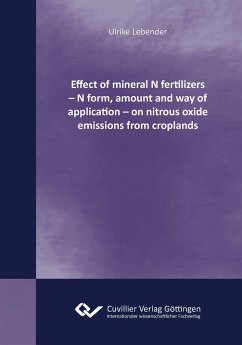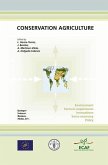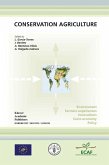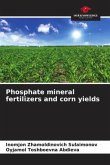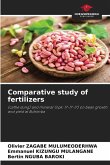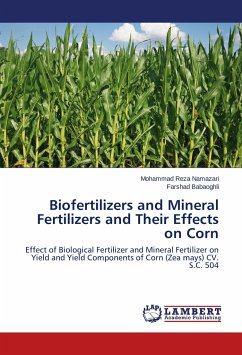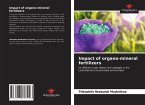The present work evaluated the effect of mineral nitrogen (N) fertilizer application during crop production on the potential risk of gaseous N loss in the form of nitrous oxide (N2O). Nitrous oxide (N2O) is an environmentally important atmospheric trace gas and contributes to the anthropogenic greenhouse effect. In addition, it is a precursor to photochemical nitric oxide (NO) production in the stratosphere which leads to stratospheric ozone depletion. Agriculture is considered to be the main source of anthropogenic N2O, with agricultural soils representing the single largest source due to nitrogen fertilizer applications during crop production. The purpose of this study was to examine the effects of mineral N fertilizers (N form, amount, mode of application) on N2O emissions from fertilized croplands in north-west Germany. Therefore several field trials, one greenhouse pot experiment and two incubation experiments were conducted. Nitrous oxide fluxes were measured by means of the closed chamber method. The length of the experimental period varied between experiments from several weeks (42 days) up to one-year measurement campaigns. The amount of N2O emitted during the crop growth period depended on the N form applied as well as on the mode of application, and a linear relationship between cumulative N2O emissions and total N fertilizer amount applied was found.
Hinweis: Dieser Artikel kann nur an eine deutsche Lieferadresse ausgeliefert werden.
Hinweis: Dieser Artikel kann nur an eine deutsche Lieferadresse ausgeliefert werden.
